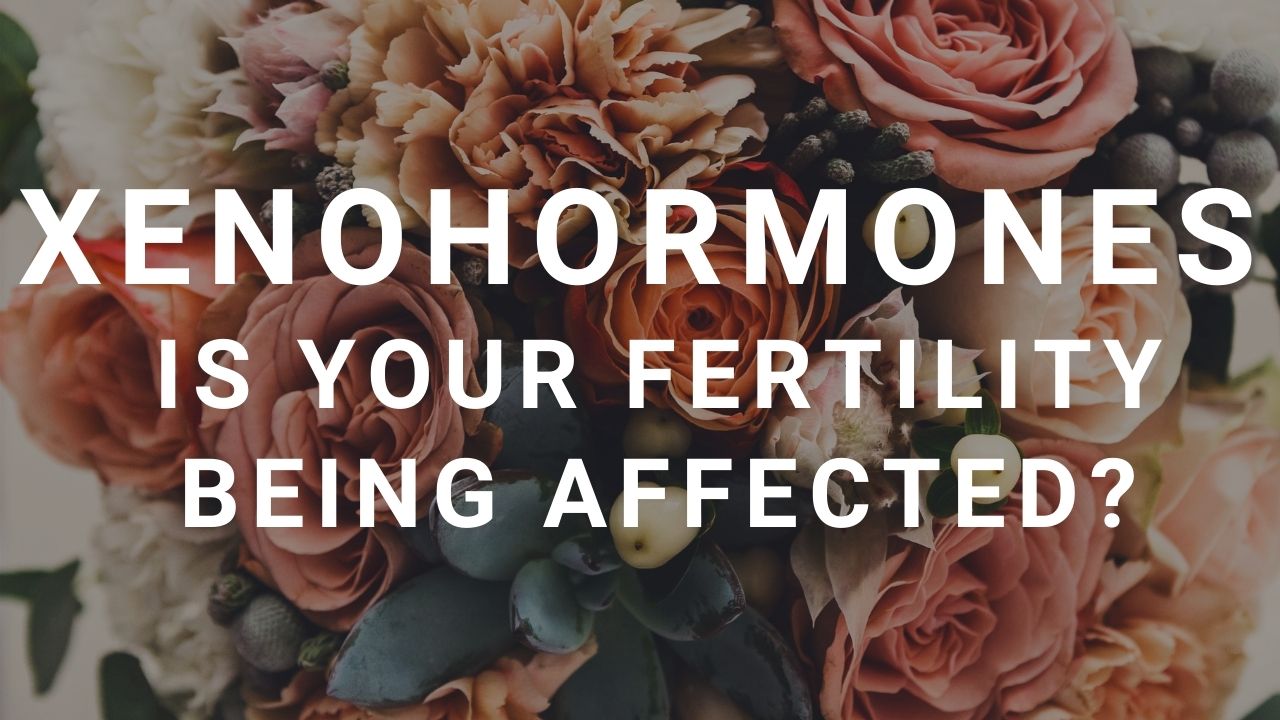If you’re preparing for pregnancy, are currently pregnant, or have little ones at home, it’s important to know about xenohormones.
These are compounds found in nature that mimic hormones in the body. And too much exposure to them can lead to fertility issues and hormonal imbalances later on.
Not only can xenohormones impact your reproductive health, but they can also affect the baby in utero, your spouse, and your children.
Is Your Fertility Being Affected by Xenohormones?
We all come into contact with xenohormones on a daily basis. Much of this exposure is through our household products, hygiene products, and the food we eat.
There has been extensive research on the connection between xenohormones and hormone disruption, which can lead to fertility issues and imbalances.
These substances can be absorbed through the skin, inhaled, or ingested – and they can build up in your body over time.
The good news is that you can greatly reduce your exposure to xenohormones by making the switch to non-toxic, natural alternatives to the products you use every day.
How Xenohormones Have an Estrogenic Effect
Certain xenohormones can have an estrogenic effect on both men and women, causing a relative progesterone deficiency. These are called xenoestrogens.
And when xenoestrogens build up in the body, they can cause a snowball effect, potentially leading to hormonal imbalances or fertility issues later on.
How Xenoestrogens Work in the Body
Xenoestrogens combine with your estrogen receptor sites, causing a very powerful stimulating effect. (These compounds are even stronger than our own actual estrogen!)
Beyond that, they can also induce the formation of extra estrogen receptor sites in the body.
All this is happening while the xenoestrogens are inhibiting the ability of the liver to excrete excess hormones. They can block other hormones from binding to receptor sites as well.
It’s important to note that all xenohormones are endocrine disruptors. This means they can all alter how natural hormones are produced, metabolized, and eliminated.
Could You Be Estrogen Dominant?
With all this in mind, you may be wondering if you have any symptoms of estrogen dominance.
Generally, fertility issues where there is something growing in the reproductive system is an indicator that you might have too much estrogen in your body.
Here are some common signs to look out for:
- Endometriosis
- Ovarian cysts
- PMS
- Breast tenderness
- Midsection fat gain
- Foggy thinking
- PCOS
- Heavy periods
- Low progesterone
- Decreased libido
- Bloating
Keep in mind that estrogen itself is not a bad thing. In the first part of your cycle, it serves the amazing purpose of stimulating the growth of the uterine lining, which prepares the uterus for implantation.
It’s when there is an excess of estrogen in the body that you could experience some of these unpleasant symptoms.
Common Sources of Xenohormones
To learn about the sources of xenohormones (and how to avoid them), you can download our free guide called The Non-Toxic Home: A Quick Guide to Creating a Healthy Home for Fertility Pregnancy & Family at www.NonToxicFertility.com.
The Bottom Line
Xenohormones are found in many of the products we use every day. Their impact can range from excess estrogen, hormonal imbalances, or other health issues in the body.
The good news is that reducing your exposure doesn’t have to be as hard as it sounds.
The first step you can take is ditching and switching your everyday products for safer, non-toxic alternatives.
We offer a free guide at www.NonToxicFertility.com that can help you get started in creating a healthy home environment for your fertility, family, and pregnancy.





